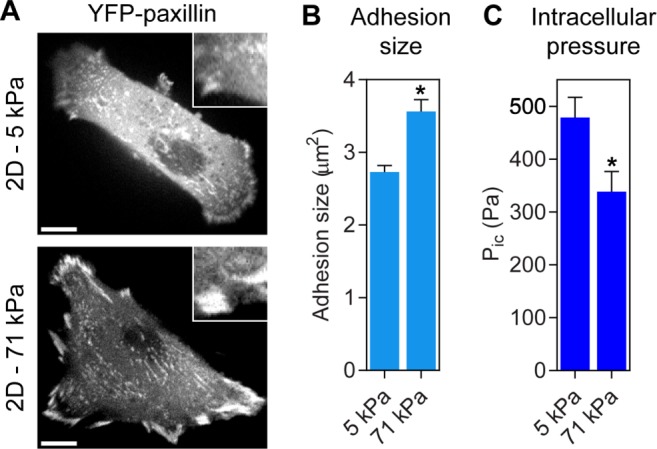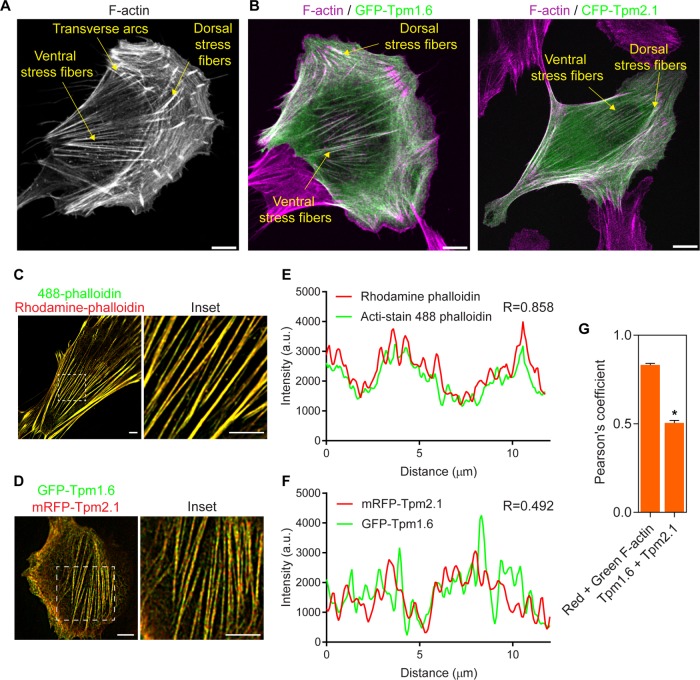Substrate Rigidity Promotes Myosin II Activity
04/21/20
Publication Title:
Myosin II Governs Intracellular Pressure and Traction by Distinct Tropomyosin-dependent Mechanisms
Advanced BioMatrix Products Used:
CytoSoft® Soft Substrate Plates
RatCol® Type I Rat Tail Collagen
How the products were used:
Human Fibroblasts were grown on CytoSoft® plates of 0.5 kPa and 64 kPa stiffness to establish whether substrate stiffness can increase focal adhesion size and cytoplasmic pressure (both which require myosin II activity). Researchers found a significant decrease in adhesion size on soft surfaces.
Article Abstract:
Two-dimensional (2D) substrate rigidity promotes myosin II activity to increase traction force in a process negatively regulated by tropomyosin (Tpm) 2.1. We recently discovered that actomyosin contractility can increase intracellular pressure and switch tumor cells from low-pressure lamellipodia to high-pressure lobopodial protrusions during three-dimensional (3D) migration.
However, it remains unclear whether these myosin II-generated cellular forces are produced simultaneously, and by the same molecular machinery. Here we identify Tpm 1.6 as a positive regulator of intracellular pressure and confirm that Tpm 2.1 is a negative regulator of traction force. We find that Tpm 1.6 and 2.1 can control intracellular pressure and traction independently, suggesting these myosin II-dependent forces are generated by distinct mechanisms.
Further, these tropomyosin-regulated mechanisms can be integrated to control complex cell behaviors on 2D and in 3D environments.





